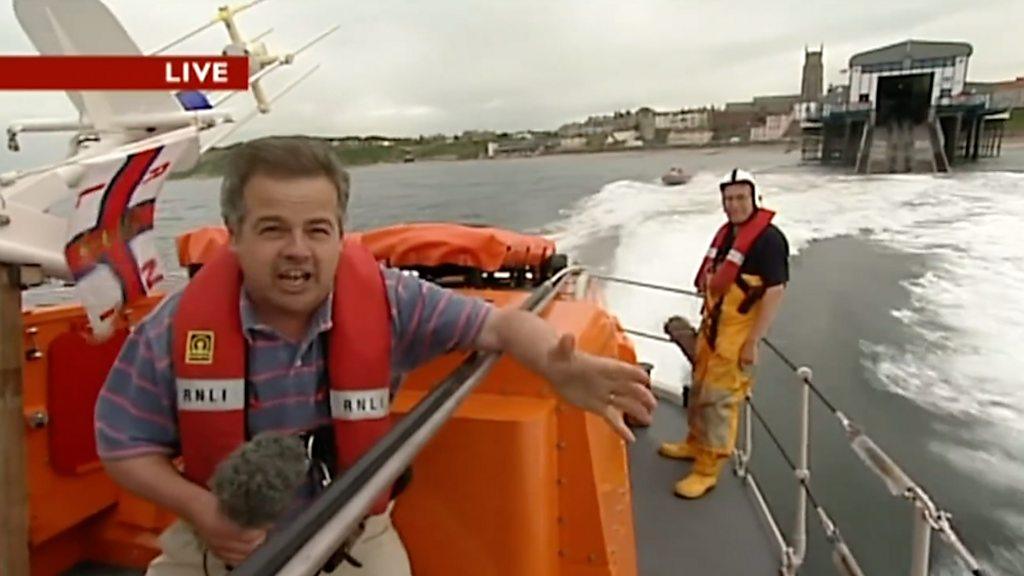The story of how BBC Look East got its name
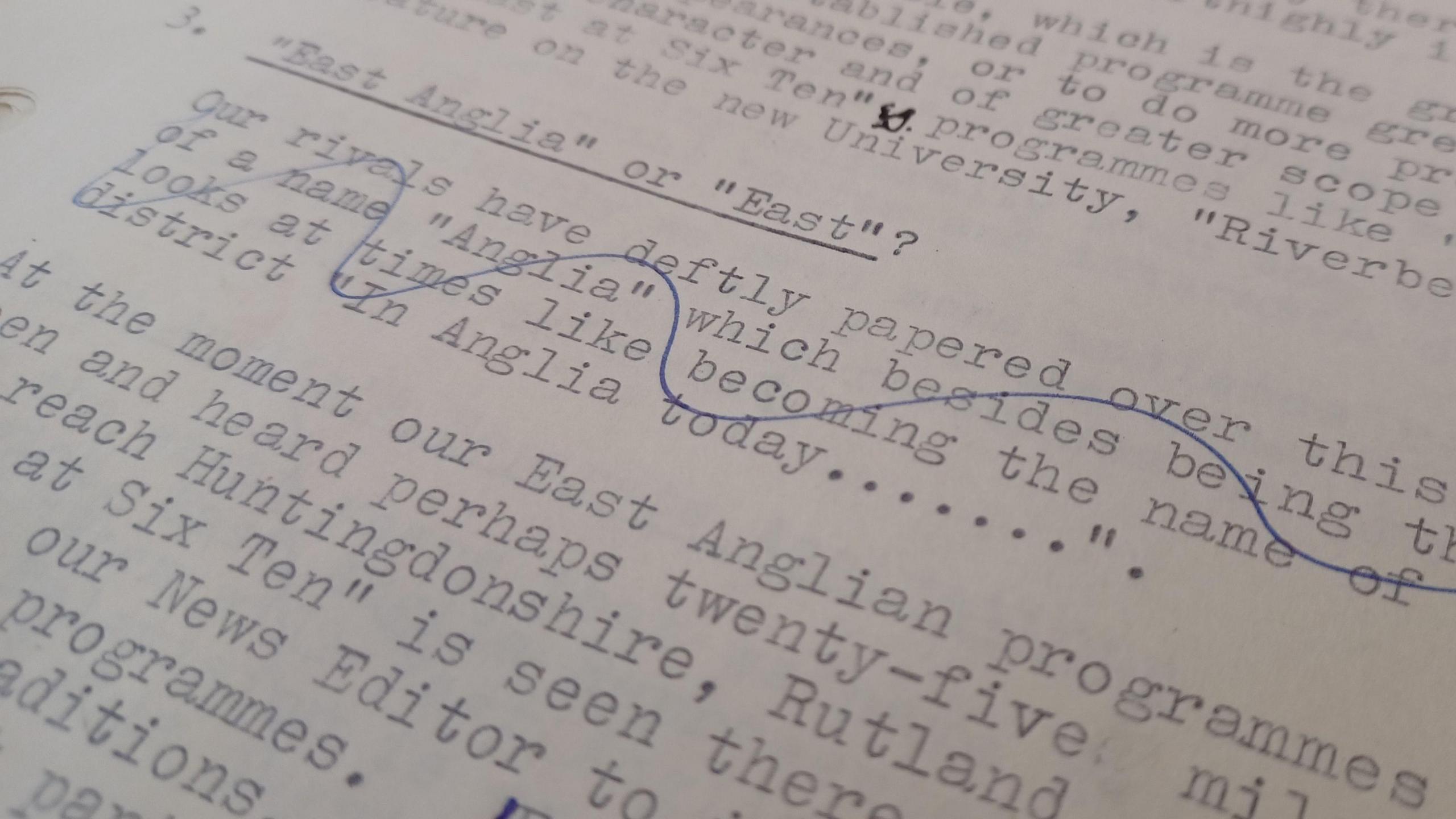
BBC bosses took their time to work out how to name Look East and considered "East Anglia" or simply "East"
- Published
Since 29 September 1964, BBC Look East has broadcast a nightly news and magazine programme across Norfolk, Suffolk, Cambridgeshire, Northamptonshire, Essex, Bedfordshire and parts of Hertfordshire and Buckinghamshire.
Although television news for the region began in 1959, the programme did not become "Look East" until September 1964.
New research from the BBC archives has helped to shed light on how and why - and reveals an internal debate over whether they wanted to be "big or little Englanders".
The BBC had begun broadcasting television news bulletins for the East of England in October 1959, from a studio hastily converted out of a garage at its East Anglian radio headquarters at St Catherine’s Close, on All Saints Green, Norwich.
Those headquarters already provided radio programmes and news bulletins on the local frequency of the BBC Home Service, which is now BBC Radio 4.
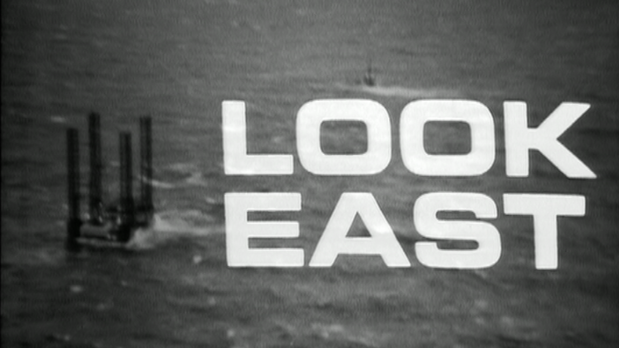
The BBC alighted on the name Look East after eliminating other ideas, including the use of the word 'Anglia'
There had not initially been any consideration of providing an equivalent television service, but that all changed in 1959 when Anglia Television, a station on the new rival ITV network, prepared to go live.
The BBC centrally suddenly decided that it was absolutely imperative to launch a television news programme for the East of England before Anglia went on air.
That basic studio was hurriedly constructed in the Norwich HQ garage, in time to beat Anglia by three weeks.
The result was a very simple news bulletin, under the rather unimaginative title of "East Anglian Television News".
In September 1962, this bulletin was expanded into a longer and more in-depth programme more like the modern-day Look East, called "East Anglia at Six", as it went out at 18:00 on weeknights.
But the title was still a problem because the BBC’s East of England region covered, as it does today, a wider area than just the East Anglian counties.
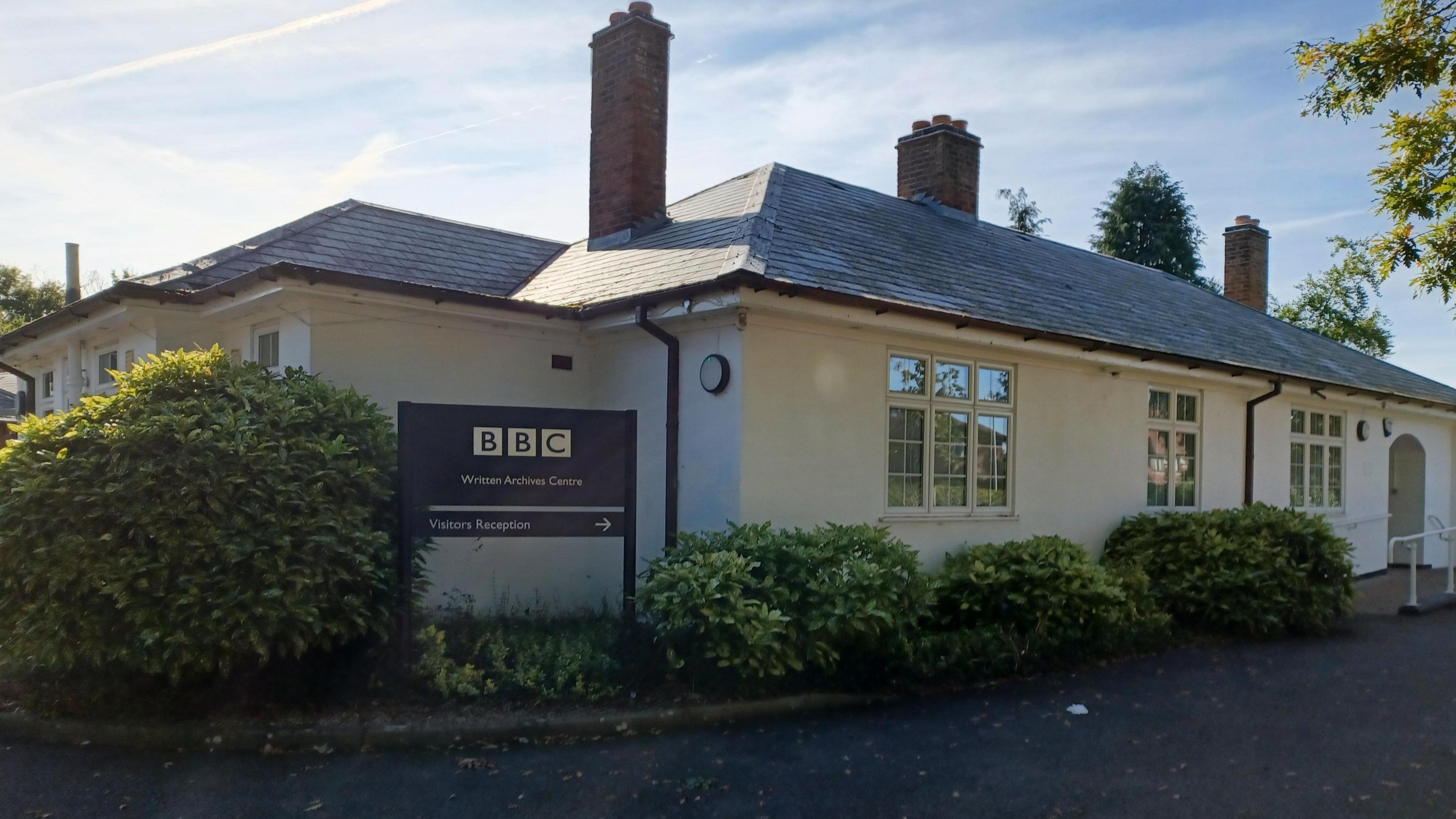
The documents are stored at the BBC Written Archives Centre, in Caversham, Berkshire
Among the documents held at the BBC’s Written Archives Centre at Caversham, Berkshire, are several which relate to how BBC management at the time grappled with this thorny problem.
The files show that they were envious of their opposition at ITV, who had come up with their own solution.
"Our rivals have deftly papered over this dilemma by the invention of a name 'Anglia'," notes one document from early 1964.
This "looks at times like becoming the name of a new bogus geographical district, 'In Anglia today'", it says.
The BBC adjusted their own title in late 1963, partly because of a change in time slot, with "East Anglia at Six" becoming "East at Six-Ten".
Surviving paperwork reveals that this new name was "prompted by acrostic considerations" – with the initials of "East At Six-Ten" spelling out the word "EAST".
"Which is our best battle cry, 'East Anglia' or 'East'? Should we aim to be big or little Englanders?" the document says.
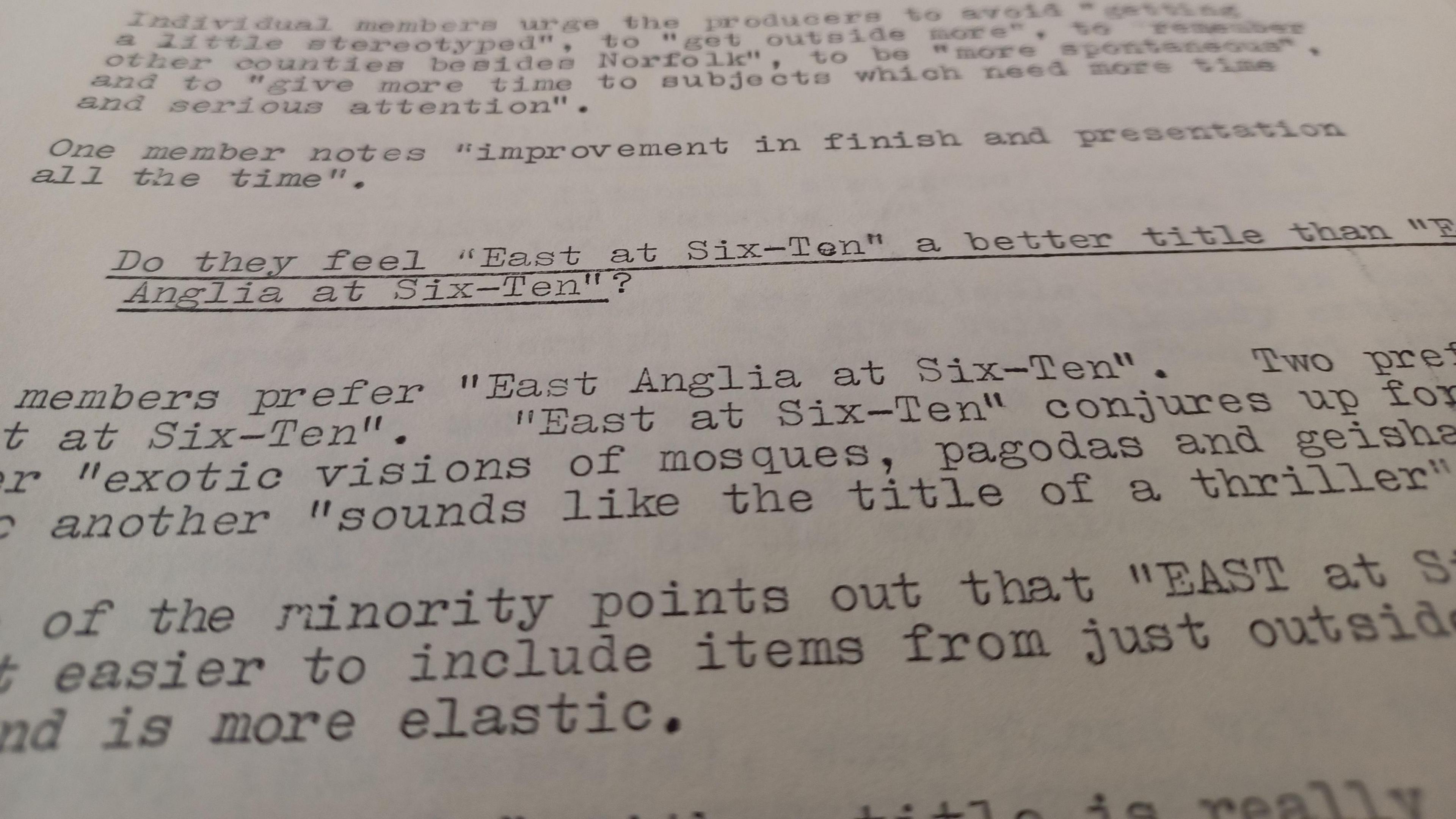
When the first programme started it was known as "East at Six-Ten"
In February 1964, they sought the views of members of their local Advisory Group, a collection of lay people who would provide regional BBC bosses with suggestions, criticisms and comments on programmes and policy.
Among the feedback they received from this group was that "East at Six-Ten" conjured up "exotic visions of mosques, pagodas and geisha girls", and "sounds like the title of a thriller".
'Technical breakdown'
At a meeting of the Advisory Group, one of its members, Ray Parkin, a newspaper editor from Peterborough, asked if the programme could not be called "Local News", leaving everybody to apply "local to their own locality".
David Bryson, the man in charge of the BBC’s programmes from Norwich, politely replied that this was "not an appropriate title for a programme with magazine content", and admitted that "East at Six-Ten" was "probably the best available title till we could think of a better".
Eventually, that autumn, they did.
With "Anglia" already taken by ITV, the BBC decided to keep its colours nailed to the mast with the word "East".
The files do not reveal who finally came up with "Look East", but it was almost certainly inspired by their fellow BBC regional news programme from Manchester, "Look North", which had switched to that name the previous year.
The arrival of Look East appears to have been seen simply as a change of title, rather than the launch of a whole new show, and so there was no great fuss or fanfare about the transition.
Which is probably just as well – as on the day of the planned launch of the Look East name, September 28 1964, a technical breakdown meant it did not go out at all.
Viewers had to wait until the following day for the first Look East.
Look East is turning 60… but what happened before it existed?
Get in touch
Do you have a story suggestion for the East of England?
Follow East of England news on X, external, Instagram, external and Facebook: BBC Beds, Herts & Bucks, external, BBC Cambridgeshire, external, BBC Essex, external, BBC Norfolk, external, BBC Northamptonshire, external or BBC Suffolk, external.
Related topics
- Published30 September 2021

- Published6 October 2023
